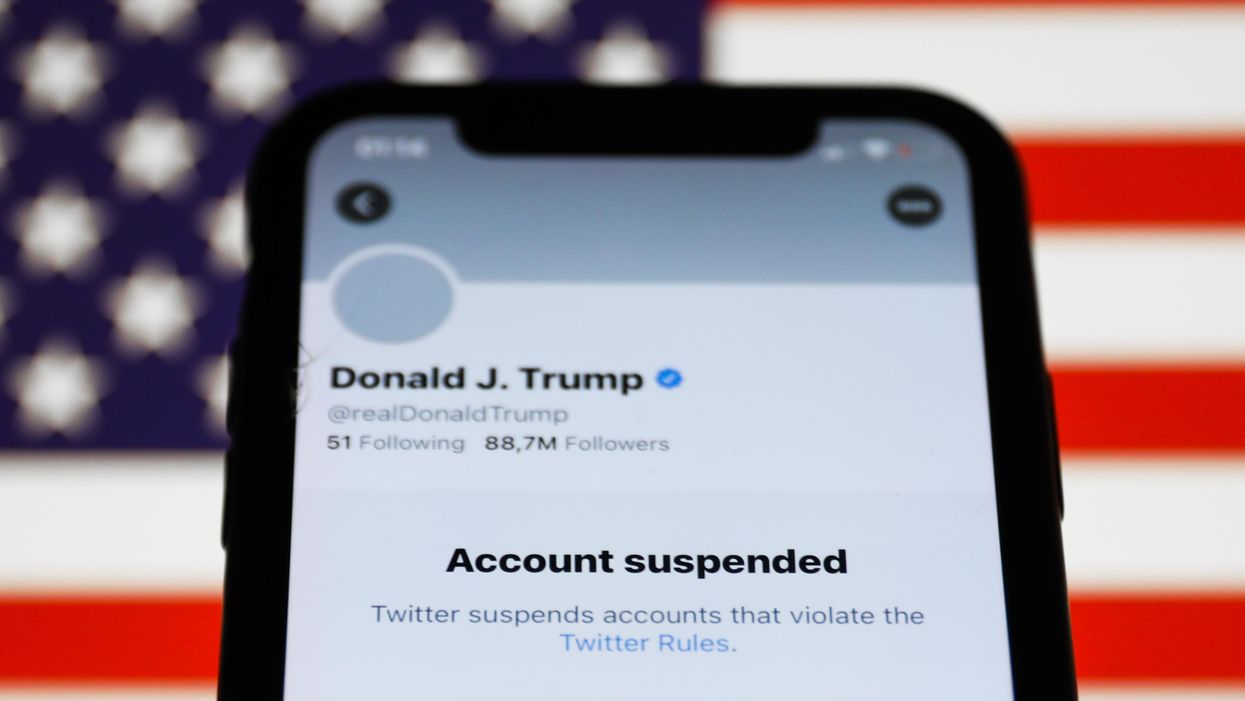Social media has become a punching bag for conservatives, who claim Facebook and Twitter have been silencing them. But in reality, the political right thrives on such platforms, a new report found.
The 28-page study, released Monday by New York University's Stern Center for Business and Human Rights, debunks the claim of anti-conservative bias on social media and shows how well the GOP has used those platforms for messaging and fundraising.
While the false pretense that social media sites are anti-conservative is not new, Republican ire was reignited last month after Twitter and other platforms banned President Donald Trump just days before the end of his term. That crackdown has spurred debate over the role social media companies will play in regulating future content.
"Trump's being exiled from the most popular social media channels should not be misconstrued as confirmation of the claim he and others on the right have long made about platform bias," the report says. "The Trump bans, while unprecedented, were based on reasonable determinations that he violated platform rules against sabotaging election results and inciting violence."
Before Trump was kicked off Facebook, user engagement on his page dwarfed that of Joe Biden. Paul Barrett, the report's primary author and deputy director of the Stern Center, found that from Sept. 3, 2020, to Election Day, there were 307 million likes, comments and shares between the two pages — and Trump elicited 87 percent of them.
His dominance of social media goes back to his first campaign: Facebook and Twitter were actually key to his 2016 victory because targeted political ads on those platforms allowed him to rake in a huge chunk of campaign cash.
And it's not just Trump's activity that's been popular on social media. Right-leaning pages almost always dominate the list of profiles with the highest engagement on Facebook, the report found. Fox News, Breitbart and The Daily Caller consistently held the top three spots from Jan. 1, 2020, to Election Day. These three conservative news outlets collectively generated 839 million interactions — beating the total engagement from seven of the top mainstream media pages (CNN, ABC News, BBC News, NBC News, NPR, Now This and The New York Times).
"The claim of anti-conservative animus is itself a form of disinformation: a falsehood with no reliable evidence to support it," Barrett writes in the report.
The NYU report isn't the only evidence that claims of anti-conservative bias on social media are unfounded.
Kevin Roose, a columnist for The New York Times, tweets daily list of the top-performing links on Facebook — data routinely dominated by the right.
Moving forward, the report recommends that social media companies provide greater disclosure for content moderation actions, offer users a choice among algorithms, hire more human moderators to oversee high-profile accounts and release more data for researchers.
For the Biden administration, the report recommends pursuing a constructive reform agenda for social media, creating a new agency charged with digital content oversight and working with Congress to update the so-called Section 230, which protects online platforms from potential liability.
"What is needed is a robust reform agenda that addresses the very real problems of social media content regulation as it currently exists," Barrett said. "Only by moving forward from these false claims can we begin to pursue that agenda in earnest."




















Trump & Hegseth gave Mark Kelly a huge 2028 gift